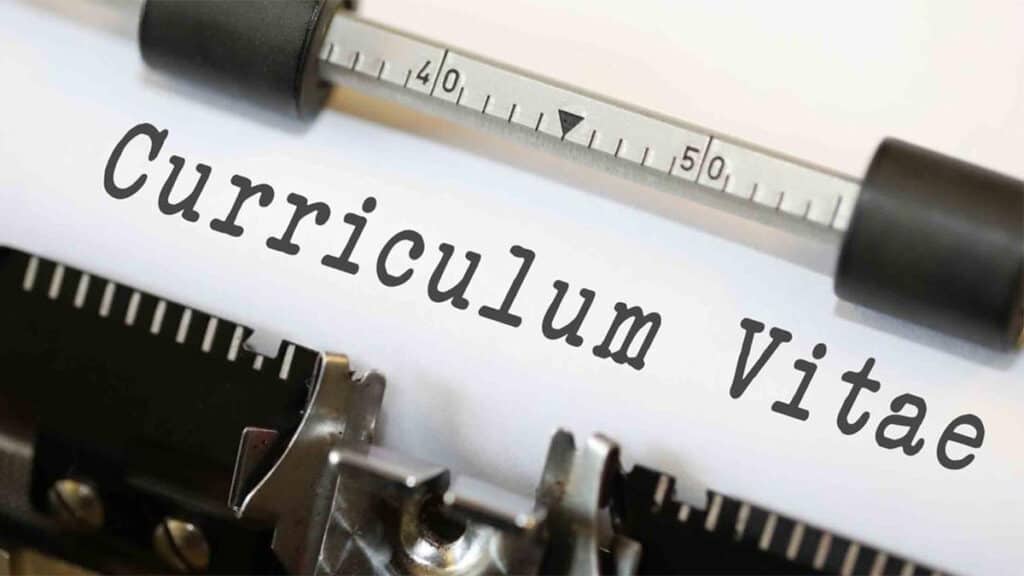Should you negotiate with a predatory journal? Feel free to do so, as it will waste their time but DO NOT ultimately submit an article. You should not publish in a predatory journal even if you negotiate them down to a very low price; even if that price is zero.
We were recently passed an interesting set of emails that took place between a predatory journal and a potential author. It was not really a negotiation, but it could be seen as that as the journal kept coming back to the author with a lower price. The author just kept responding in a bland way, not really negotiating; just keeping the conversation going.
In short, the author was invited to submit a paper but no fee was given. The author asked about any fees and there followed a “negotiation” with the predatory journal, which saw the article processing fee drop dramatically.
In a previous article, we asked “How to respond to an EMAIL from a predatory publisher?“. One of the suggestions we made was to “Strike up a Conversation” and this article is a demonstration of that idea, but it specifically focuses on negotiating a lower Article Processing Charge (APC).
Negotiation with a predatory journal
We were contacted by somebody who passed us some email correspondence that had taken place between him/her and a predatory journal.
We present this correspondence below, but anonymize the journal, the publisher and the names, as we do not want to risk revealing the identify of the person who contacted us. To save just writing “redacted” everywhere, which we find a little jarring, we have used fake names for the people, the journal and the publisher.

The initial email
This is the unsolicited email that was the catalyst for the email correspondence and also this article.
“Dear Dr. John/Jane Doe,
Greetings from Scientific Publishing!
It gives us immense pleasure to invite you to write a short communication or Commentary on the manuscript entitled “[legitimate article name that was published]” for consideration and publication in forthcoming issue to be published in The International Journal of Cancer Archives.
Basic Guidelines:
- It can be an extension of the published article, where you can further discuss any recent updates in this research or analyse the issues addressed in the focal article.
- The page limit is not precise but still we expect a 4-7-page commentary (max. 3500 words) with or without figures and the reference limit is 50-70.
- You have the freedom to restate the issues discussed but do not summarize the focal article exactly in the same way/Title of the commentary should not be the same as the focal article.
Authors may submit their manuscripts online at [URL] or directly as an email attachment to [email address].
The deadline for submission of manuscript is Jan 20,2021.
Kindly, let me know as soon as possible if you are interested in submitting a manuscript for our journal issue. It is an opportunity to take part in and to influence future trends in one of the fastest growing fields of research.
We will be looking forward to hearing a positive response from you soon. Have a great & Healthy day ahead!!
Best regards,
Julie Davies
Managing Editor
The International Journal of Cancer Archives
Scientific Publishing LLC“
We note the following about this email.
- There is no mention that this journal is open access.
- There is no mention of an Article Processing Charge (APC).
- The deadline is quite a long way off (20 January 2021). The email was received at the start of December 2020 we believe. This is quite unusual for a predatory journal. They usually only give a few days as a deadline as they are trying to get one or two more papers for the current issue.
- Like many emails of this nature, it cites a paper written by the author (sometimes with the abstract). This is no indication that they have read the paper and, in the past, we have seen authors trying to engage the publisher in a conversation about why they feel that the article so interesting, exceptional; and many other ways of praising the paper and/or author.
- The authors are invited to submit a Short Communication or Commentary. We are unsure what this means in the context of scientific publishing, especially a commentary. Is the author being asked to comment on their own paper?
The author’s response
The author responded to the email in the following way:
“Thank you for this. Not looked at your web site but can I assume that there are no article fees (as you never mentioned them)?“
The journal’s response
Thanks for your prompt response
We appreciate your interest in submitting an article to The International Journal of Cancer Archives. We are an open access journal and open access journal are always curable as we mentioned in our journal website. However considering your email we will give you 40% discount on the APC 500 USD. So you need to pay only 300 USD. Please let know the genitive date of submitting your article.
It is interesting that the author was immediately offered a 40% discount. It is not something that was requested.
We took a look at the journal’s home page, just to check what their stated APC’s are. Figure 1 shows a screen shot of their charges.

The type of article that was invited (Short Communication or Commentary) is priced at 500 USD, with the APC for special issues being 300 USD. Therefore, the discount that has been offered has changed the APC from its usual price to the APC for the special issue price.
We also note that the email is poorly written, as is often the case with predatory journals.
One of the sentences says “[The journal] is an open access journal and open access journal are always curable as we mentioned in our journal website.” We are unsure what curable means in the context of this email. The Cambridge Dictionary defines it as a disease that can be cured. For example, “Many illnesses which once killed are today curable“.
Another sentence says “Please let know the genitive date of submitting your article.” The meaning of genitive is also shown in Figure 1. The meaning makes no sense in the context of the sentence in which it is used.
Don’t get us wrong. We do not wish to belittle those whose native language is not English. Many struggle with this. But, we are native English speakers and we would not even consider using those words in those sentences, especially genitive. Unless you are a linguist, we are unsure why that word would be considered.
The next email exchange
The next email that the author sent said:
“Thank you for this, and I appreciate the gesture, but that is too much for a non-indexed journal.“
Note that there is no negotiation. It is a simple statement, simply saying that they were not prepared to pay that amount and (essentially) that is the end of the matter.
However, the journal responded.
“Thanks for your email,
As a professor you might have known article processing involves in lot of efforts and resources, so it is not possible to waive off the APC completely. Please let me know how much is affordable for you, so that I can I can talk to my manager regarding limited funding to your research. Awaiting your response.“
We are not sure why the journal has to point out that as a Professor, that there is an expectation that something should have been known. In fact, the Professor has never said that they do not understand anything, they simply said that they were unwilling to pay the APC amount being asked.
If the journal is suggesting that the Professor should have known, and expected, that there was an APC, how would he/she know? It was not stated, in the original email, that the journal was open access, nor was there any mention that an APC would be charged. This is why the Professor asked the question in response to the original email.
Moreover, the author said that the fee was too expensive for a non-indexed journal. They did not ask for a full waiver.
The potential author responded:
“Thanks Julie, no worries then.“
Was that the end?
You might have thought that this was the end of the matter, but the journal responded as follows:
“Thanks for your email,
Could you please let me know how much can you pay for the article. Awaiting your response.“
This is interesting, as the author has indicated that this is end of the matter, yet the journal is now asking the author to suggest a fee that they are able to pay.
The author responded:
“I do not want to insult you by offering a price where you are providing a service at a loss. You have been generous enough to offer a 40% discount, and I appreciate that. I assume that is your best price and it does not feel right to negotiate. Moreover, I am a scientist and not good at, or feel comfortable, negotiating these things.“
Even though the author had said that they had no wish to negotiate, the journal made a further offer:
“Thanks for your email,
Considering your email I have spoken to my editorial team regarding lack of funding to your researches, they agreed to do it for 150 USD. which is the basic price of reviewer to review the article. Hope this will be good enough for you to publish your article. Awaiting your submission.”
We note that they mention lack of funding. This is not necessarily the case. The Professor has simply stated that it is too expensive. There are many things in life that you could afford but you just decide to spend your money elsewhere.
They also state that 150 USD is the basic price of reviewer to review the article. This suggests that they are paying their reviewers, which we do not believe.
The author responded by saying:
“I have checked with my institution and they will not pay this amount for a journal that is not indexed in either Scopus or Thomson Reuters.“
… and this is where the correspondence has (currently) stopped.
Comments
The title of this article is “Should you negotiate with a predatory journal?” That title is a little misleading as, reading through the various emails, it does not appear that that author negotiates. Indeed, the author says that he/she does not wish to negotiate and yet the journal comes back with an even lower offer.
If the author has submitted an article in response to the initial email, they would have received an invoice for 500 USD, even though that was not stated in the email.
So, if you receive an email such as this, it is worth just asking the question about whether there are any Article Processing Charges (APC’s) as the author who is the focus of this article immediately got a 40% discount.
Just by refusing to pay, the author got a further 50% discount, reducing the initial APC from 500 USD to 150 USD.
In our view, this demonstrates the desperation of this journal and, we suspect, many other predatory journals.
What next?
We would like to explore this area a little more, so if you have had correspondence with a predatory publisher similar to that which we have reported above, we’d be very interested to see it.
We also have a few ideas of our own about how we can correspond with predatory publishers, beyond just talking about APC’s, but we’ll save those ideas for later article(s).
Final Comment
I know we are repeating what we have already said above but feel free to have an email discussion with a suspected predatory journal, even negotiate with a predatory journal. Indeed, it is a good thing as it wastes their time, which they could be spending trying to attract papers from other researchers.
However, do not submit to these predatory journals. They harm your CV and there is no good reason to publish in a predatory journal.
You might also be interested in
- How to spot a fake journal | A case study
- Why do authors publish in predatory journals?
- Do predatory publishers respect the scientific archive?
Image Acknowledgements
- Header Image: Image by Gerd Altmann from Pixabay (https://pixabay.com/photos/shaking-hands-handshake-hands-3091906/)
- EMAIL Tiles: Photo by Miguel Á. Padriñán from Pexels (https://www.pexels.com/photo/email-blocks-on-gray-surface-1591062/)



